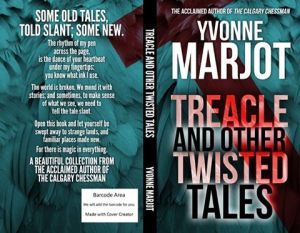This one’s not so much twisted as updated, and brought back to the level of nastiness I remember from reading translations of Grimm. By name and by nature – the endings of folk and fairy tales were once much darker. For this one I have in mind the wonderful Cloris Leachmann (http://www.imdb.com/name/nm0001458/) , who is currently owning the small screen in ‘American Gods’. Who would you cast in the role of Malva?


Something Wicked, Something Pink
So many people. They must have invited everyone. Malva inserted herself into the stream of partygoers pouring in through the great doors, flung open to the cool air of early evening, and peered through the throng. Everyone except me, that is. She stamped her foot. A startled footman glanced in her direction and she plastered a pleasant smile on her face and accepted a vol-au-vent from the tray he proffered. Now, where is that blasted baby?
She shouldered through the crowds, working her way into the heart of the building. Security was easy to spot – black suits, mirror shades, the whole stone-faced thing – but she had nothing to fear from them. Out here no-one was checking invitations (after all, everybody had one) and a little sleight of hand and misdirection should see her past anyone who took more than a casual interest. As for getting into the christening party itself… “Hello, dear.”
The sharp-suited man startled as the frail elderly woman greeted him. He drew himself up, preparing to send her on her way, but she grasped his elbow with surprisingly strong fingers. “I don’t…”
The words died in his throat as she administered three brisk taps to his wrist, neck and temple. All intelligence drained from his face and he gazed at her, open-mouthed, as she took charge and led him away. “There’s a good boy. Just keep walking. Now, take me to the family.”
He nodded, and escorted her through the crowds, all the way to the golden cradle. Malva relinquished her hostage as soon as she passed through the security cordon (her sibyllic ID – slightly psychic – and a pet security agent were all she needed to baffle the guards) and he wandered back to his post, none the worse for his experience, apart from a baffling tendency to scream whenever small, elderly ladies approached him.
The cradle was mobbed. All the invited bigwigs were offering their well wishes to the family. Malva wormed her way to the edge of the cradle. Some simpering fairy was offering up a pitiful wish. “May your days be merry, and your heart full of cheer.
Pathetic. The parents were lapping it up. The father stood grasping a glass of fizz, while the mother was practically festooned in ribbons and shiny paper from the gifts she was unwrapping. A teddy bear. Pink. A doll’s house. Pink. A satin dress with three layers of frills. Pink, what else? It was enough to make you sick.
“Darling child, your lips are like rosebuds, your eyes as bright as stars. May you marry the handsomest man in the land and live happily ever after.”
For heaven’s sake, is that what it’s come to? A chubby ball of fat, barely out of the womb, and it’s already being wished into a life of painted boredom? It had better hope it didn’t have much of an intellect, because otherwise this promised life was going to be nothing but a disappointment. Malva could stand it no longer. She stepped forward, sharp elbows at the ready.
“If you exchange your identity for invisibility in a pink shroud, you might as well be dead. So be it. At sixteen, you will come of age and die.”
Recent Comments